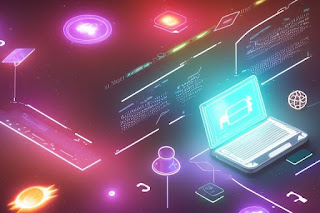The future of education is likely to be shaped by advancements in technology and changes in pedagogy.
Here are a few trends that are expected to play a significant role:
1. Online Learning: The popularity of online education has been rising steadily in recent years, and this trend is expected to continue. Online learning offers flexibility, accessibility, and personalized learning experiences. With the improvement of virtual reality and augmented reality technologies, online learning could become even more immersive and engaging.
2. Personalized Learning: The one-size-fits-all approach to education is gradually being replaced by personalized learning. With the help of data analytics and artificial intelligence, teachers can better understand each student's strengths, weaknesses, and learning styles. This enables them to tailor curriculum and instructional methods to meet individual needs.
3. Gamification and Experiential Learning: Gamification, the use of game elements in education, has the potential to increase student engagement and motivation. It can make learning more fun and interactive by incorporating challenges, rewards, and competition. Additionally, experiential learning, which focuses on practical, real-world experiences, helps students apply knowledge in meaningful ways. Virtual simulations and hands-on projects can enhance this type of learning.
4. Lifelong Learning and Skills-based Education: With the rapid pace of technological advancements, the importance of lifelong learning is increasing. Students will need to continuously acquire new skills to adapt to changing job markets. Therefore, education systems will likely prioritize the development of transferable skills, such as critical thinking, problem-solving, collaboration, and digital literacy, rather than just subject-specific knowledge.
5. Blended Learning: Blended learning combines traditional classroom teaching with online elements. This model allows for a more flexible and personalized learning experience. Students can access course materials and resources online, collaborate with peers and teachers, and receive personalized feedback. Blended learning also provides an opportunity for students to develop self-discipline and time-management skills.
6. Global Collaboration: The future of education will likely involve increased global collaboration and cultural exchange. Technology enables students from different parts of the world to connect and collaborate on projects, expanding their worldview and promoting cultural understanding.
This can lead to diverse perspectives and a more inclusive educational experience. While technology will play a significant role in shaping the future of education, it is important to emphasize the importance of human interaction and the role of teachers.
The integration of technology should complement, rather than replace, the expertise and guidance of educators.
Ultimately, the goal of education should remain focused on preparing students for the challenges and opportunities of the future.
References
Special Issue "The Future of Educational Technology"https://www.mdpi.com/journal/education/special_issues/future_educational_technology
"The future of education is here"https://www.un.org/en/coronavirus/future-education-here
Blogs on 'Future of Education'. https://www.cambridgeassessment.org.uk/blogs/categories/future-of-education/





Thank you for reading!